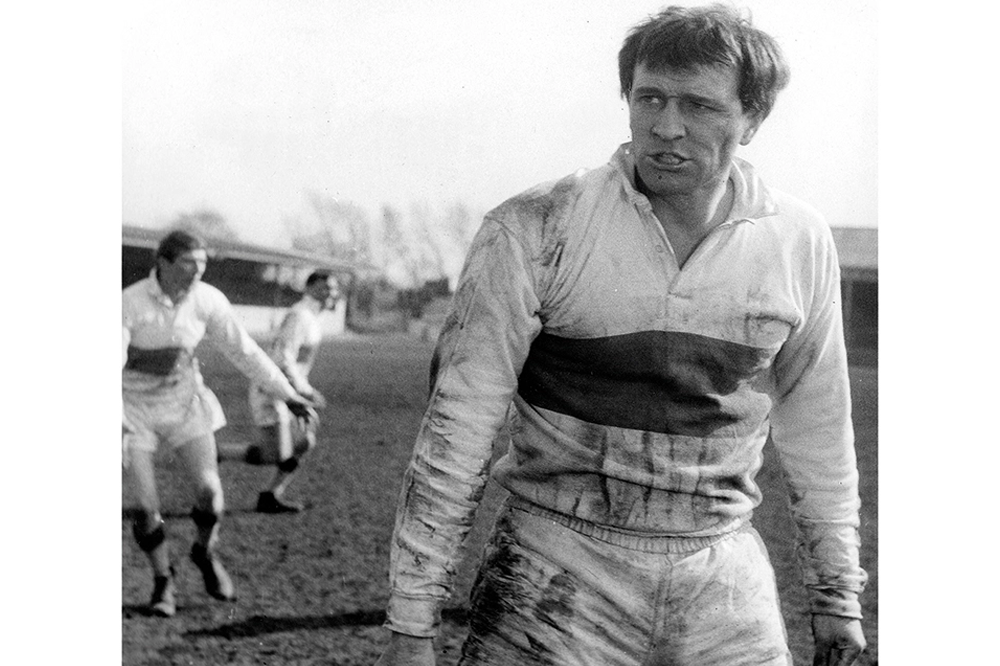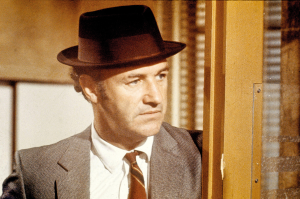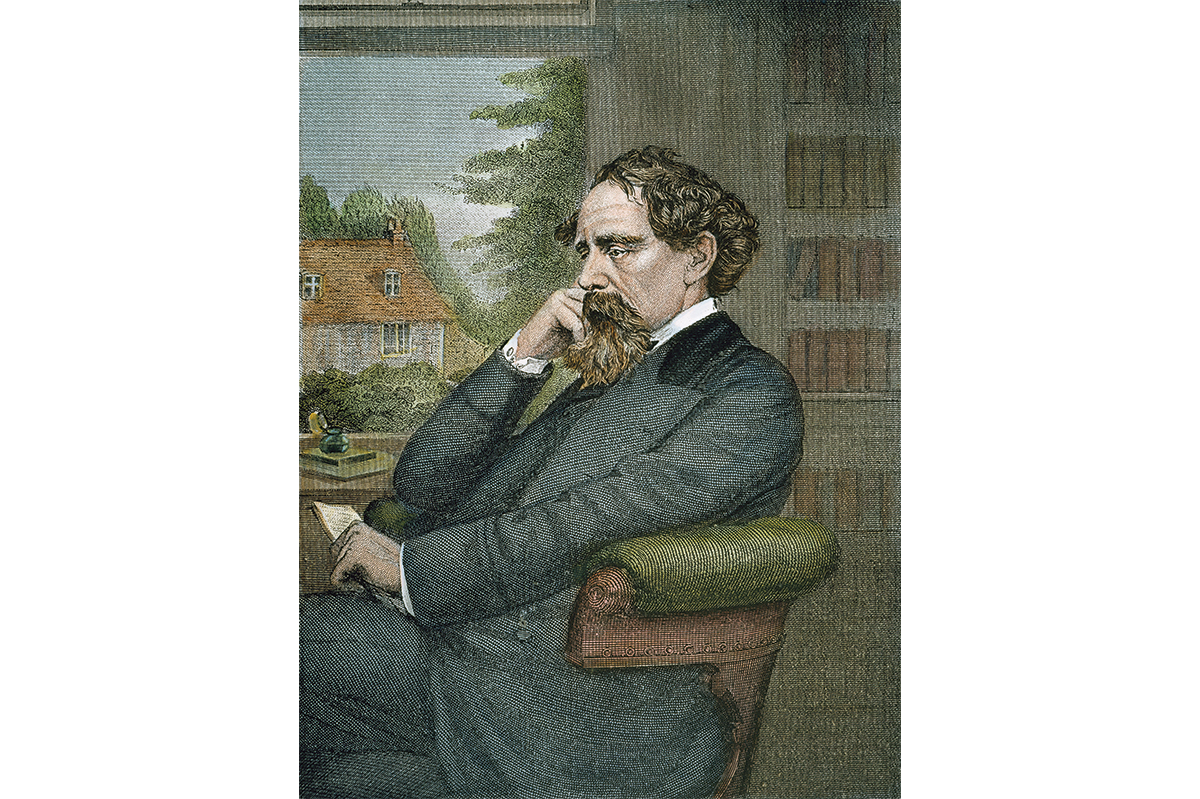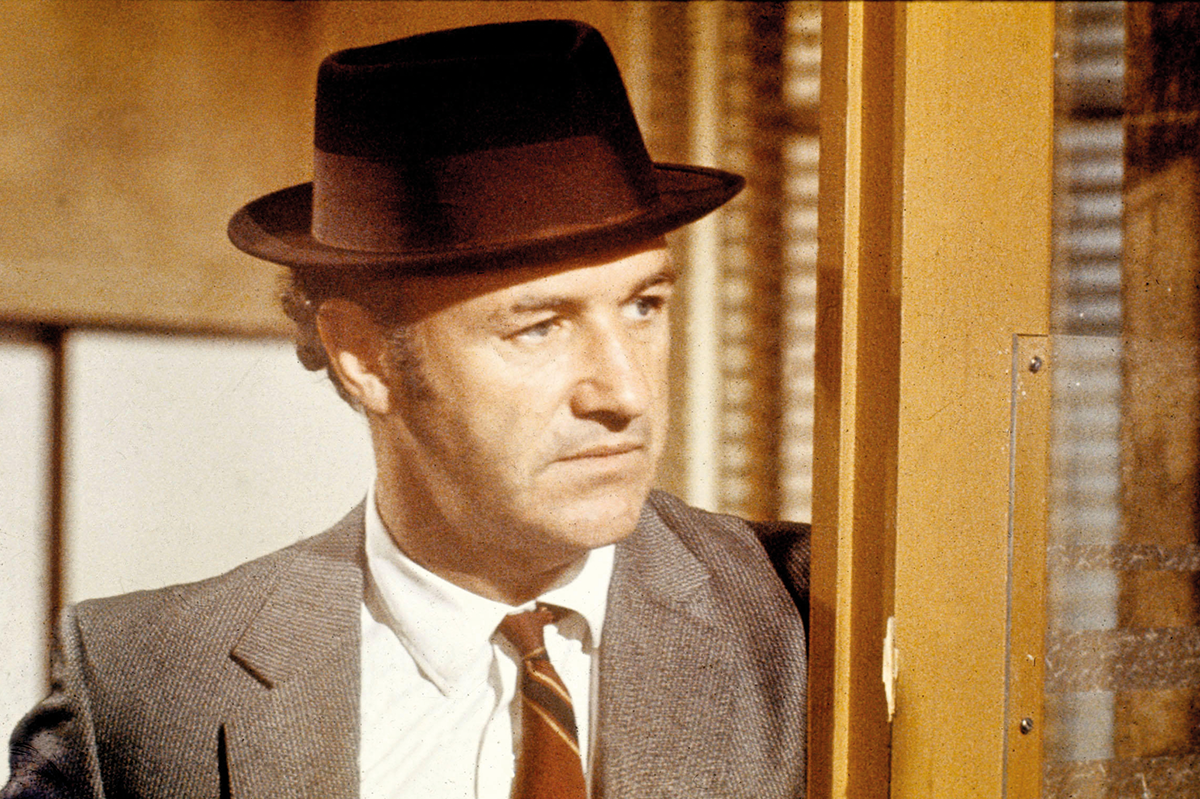Brawling, boozing and womanizing, those vaunted hell-raisers of the 1960s — Peter O’Toole, Oliver Reed, Richard Burton and, of course, Richard Harris — were all frightful bores. Because their professional lives involved dressing up and wearing mascara and silly wigs, it was essential for them to show what he-men they were: how hard. Like Stanley Baker (another one), Harris boasted to columnists: “I’ve got great contacts with the underworld,” especially the Krays. He never had anything to say about the artistic merits or meaning of any of his films. His stories were exclusively about his prowess as a bully. Crushing an apple, he typically said to one of his directors: “If you don’t get out of this room right now, this is what I’ll do to your skull.”
Joe Jackson’s book is a catalog of Harris’s “screaming matches” with everybody from producers to chauffeurs. If one of the studio drivers “failed to open the car door fast enough” Harris would start kicking off and creating a scene. He boasted about staring down Marlon Brando and called him “a gross, misconceived amateur.” He said to Lindsay Anderson: “Stop smiling! You’ll smile when I tell you to.” He thought he was witty in the extreme, describing Charlton Heston as “so square, he must have been born in a cubic womb.” To Kirk Douglas, on being shown his art collection, he said: “You know, Kirk, this isn’t a display of taste; it’s a display of wealth. It’s a different thing, you know.”
Harris had a very high opinion of himself, and wrote dire poems with titles such as “I, in the Membership of My Days.” As an actor he did one of two things: exaggerated whispering or barks. If he’s good as the worn out rugby player in This Sporting Life (1963) it’s because he didn’t dare attempt any egocentric nonsense with Rachel Roberts. Otherwise who wants to be bothered with his action pictures where stuntmen did the real work (The Heroes of Telemark), international thrillers, cowboy films, endless tours of Camelot, killer-whale dramas, or as Dumbledore in the first Harry Potter films? If I like him as Bo Derek’s father in Tarzan the Ape Man it’s for the scene where he is fatally impaled on an elephant’s tusk.
As we read here, “stardom seemed to twist him out of shape”; but Harris, born in 1930, was obnoxious early on. Though he pretended to come from the “basic working class,” this was not the case. His family were a well-off Limerick dynasty, Ascendancy originally. As the owners of flour mills and animal feed factories, his parents lived in a nine-bedroom red brick villa. “I remember great wealth and opulence when I was small,” he confessed to Jackson. “My mother always had servants and my father always had a chauffeur-driven car.”
Nevertheless, Harris was proud to have been “an outsider at home and misfit in school,” and was expelled for setting fire to the toilets. He enjoyed rugby (“I was deadly serious about the game”) but his prowess was attenuated by a bout of tuberculosis. Since he craved attention, acting held a natural appeal. His parents, glad to get rid of him, paid for his drama schooling in London. By 1955, “determined to hold on to my Irish identity,” as he said, he was appearing in plays by Brendan Behan under the direction of Joan Littlewood. He claimed to have slept in dosshouses or rough on the Embankment.
“It was a brave new world, and Richard Harris would soon play a part in it all,” writes Jackson. Only a small part, if kitchen-sink realism is meant: just Lindsay Anderson and David Storey’s excellent This Sporting Life. After that it was Hollywood (Mutiny on the Bounty, Major Dundee) and two bottles of vodka a day, the drinking exacerbating a “great restlessness.” Though Harris married Elizabeth Rees-Williams in 1957, he regularly came home drunk with a bunch of mates, and “I probably did give her a smack across the face.” There are plenty of witnesses to the way he “verbally ripped her to shreds.” It was the same with his second wife, Ann Turkel, shouting at her in first-class lounges at airports. There were psychotic episodes and blackouts.
Harris is illustrative of his epoch — what Jackson lists as his subject’s sexism, chauvinism and misogyny. “I was always a horny bastard,” said the actor, who thought of himself as “the king of infidelity,” even out-performing Errol Flynn. He considered wives and girlfriends his private property, people he could beat by right: “A man has to lay down the law occasionally.” His preference was for “progressive nymphomaniacs” such as Princess Margaret: “I was having it off with the sister of the Queen of England.”
He had a horror of settling down. “Some men need a home, a wife and kiddies. To me, that’s impossible” — presumably because he was so vibrant and special. He preferred living in hotels and was regularly seen shambling in and out of the Savoy, unkempt in a baggy tracksuit, with terrible hair and old-fashioned aviator-frame glasses: “Richard hated the idea that he might be ordinary, just another face in the crowd.” When he lurched towards me once I thought he was selling the Big Issue. Hoping to make himself stand out, he was ungracious, condescending and ultimately pathetic and lonely, hanging around a pub called the Coal Hole, trying to engage strangers in conversation.
Always needing to put people at a disadvantage, Harris scuppered his own authorized biography. For years he flattered Jackson, saying: “You are the only journalist I would trust with my life. I never had any serious doubts about your writing my biography.’ In Jackson’s hearing, he said: “Joe is very bright. He doesn’t miss much. And he is a marvelous writer.”
But it was flannel, a wind-up. Jackson found that Harris was skilled in evasion, deliberately losing tapes and documents, failing to return phone calls, ignoring messages and entreaties and disappearing for long periods. This biography has been a protracted exercise, begun in 1987 and fizzling out with Harris’s death in 2002. There were also other rival “official” biographers, including Michael Feeley Callan. Understandably, now and again Jackson lost his temper, which stunned Harris, who suddenly became a crushed little boy. Nevertheless, the book maintains a generally even-handed manner — which is more than commendable, given its subject’s utter vileness.
This article was originally published in The Spectator’s UK magazine. Subscribe to the World edition here.

























